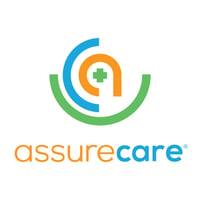
Utilization Management
Verify eligibility, optimize reviews, and streamline appeals and grievances.

Utilization Management
Verify eligibility, optimize reviews, and streamline appeals and grievances.

Care Management
Enable preventative care, manage medical interventions, and efficiently report on program outcomes.

Medication Management
Perform and bill medical services, ensure medications are safe and effective, and identify ways to improve care.

Quality Management
Improve outcomes, lower costs, and adhere to standards, such as HEDIS, Stars, and PQA.

Specialty Pharmacy

Globally, healthcare has changed significantly over the past 10 years. The COVID-19 epidemic has resulted in economic crisis and an upsurge in the adoption of technology and digitalization. As layoffs in the IT industry impacted 2022, interest in artificial intelligence (AI), machine learning (ML), and all things digital in healthcare has continued to grow as a means of enhancing patient care and lowering healthcare expenses. In fact, because of their rapid acceptance, AI and ML in healthcare are predicted to reach $20 billion in 2023.
Population health management technology is among the subjects that remains top of mind in the healthcare industry. Incentive rewards for high-quality treatment are given to doctors as part of the shift to value-based care, and population health aims to raise clinical metrics for certain patient populations.
Population health management is a vast concept with many interrelated components. There is no universal approach to managing population health, thus programs must be adaptable to the requirements of various provider organizations.
Population Health Management Solution Trends We Predict in 2023
Remote Patient Monitoring and Wearable Medical Devices
Remote patient monitoring (RPM) is a population health management solution which consists of collecting health data from patients in a non-clinical setting, such as their homes, through digital technologies. Wearable medical devices are electronic devices worn on the body to monitor vital signs, track fitness and health metrics, and provide other health-related information. Examples include fitness trackers, smartwatches, continuous glucose monitors, ECG monitors, and smart clothing. They have several advantages, such as convenience, real-time monitoring, and the ability to track health metrics over time.
This trend is expected to persist as the pandemic has accelerated the adoption of e-health and remote monitoring. With the advances in wearable devices and IoT technologies, more affordable and effective RPM solutions may be available for patients with chronic conditions, such as diabetes, hypertension, and heart disease.
The Internet of Things
The Internet of Things (IoT) is a network of devices, sensors, and objects that are connected to the internet and communicate with each other. It can be used to improve patient care in several ways, such as monitoring patients remotely and collecting real-time data without the need for office visits. This can help reduce costs and save time for patients and providers. It can also be used to enable remote consultations between patients and healthcare providers, improving access to care for patients in remote or underserved areas. Data privacy and security, as well as the accuracy and reliability of IoT devices should be taken into account when utilizing the IoT.
Artificial Intelligence in Healthcare
AI is one population health management solution that already has a significant impact on the healthcare industry, and its influence is likely to grow in the coming years. It can be used to analyze medical imaging, drug discovery, personalized medicine, virtual assistants, and predictive analytics to help healthcare providers deliver more targeted and effective care. However, there are contemplations about data privacy, bias, and the ethical implications of using AI in healthcare. It is important to address these issues and ensure that AI is used responsibly and ethically within the healthcare industry.
Remote Healthcare – Virtual Hospitals, Healthcare Communities, and Telehealth
In population health management, remote healthcare is used to deliver healthcare services, such as consultations, follow-up care, and medication management, in non-traditional healthcare settings. Virtual hospitals provide a range of healthcare services with networks of patients, caregivers, and healthcare providers. This approach can help reduce hospital readmissions and improve patient outcomes, but there are challenges associated with remote healthcare, such as data privacy, reimbursement policies, and the need for digital literacy. As remote healthcare continues to grow, it is important to address these issues and ensure that patients receive safe, effective, and equitable care. Remote care offers convenience to patients to receive quality care from the comfort of their homes.
Retail Healthcare
Retail healthcare refers to the delivery of basic population health management solutions through retail clinics, pharmacies, and other non-traditional healthcare settings. It typically includes basic medical services such as vaccinations, blood tests, physical exams, and treatment of minor illnesses and injuries. Examples of retail healthcare include small clinics located within drug stores, supermarkets, and other retail locations, pharmacy-based services, and urgent care centers. Over the past couple years, we saw a huge uptick in the utilization of these settings, especially the use of pharmacies for non-traditional services. Retail healthcare has several advantages, such as convenience, accessibility, and lower costs. Quality of care can be a concern in retail settings. However, with the right tools and technology solutions, patients can receive safe, effective care without compromising quality.
Personalized Care and Precision Medicine
Personalized healthcare, also known as precision medicine, is an approach to healthcare that considers individual differences in genetics, environment, and lifestyle when making treatment decisions. With the advancements in genomics and artificial intelligence, more sophisticated tools and algorithms can analyze large amounts of health data to provide personalized care plans. Examples of personalized healthcare include genetic testing, pharmacogenomics, digital health technologies, Nutrigenomics, and personalized dietary recommendations. It has several advantages, such as improved treatment outcomes, reduced healthcare costs, and increased patient satisfaction.
Digital transformation of healthcare is expected to continue at a rapid pace, with more innovations in digital health that will transform how healthcare is delivered and managed. Achieving accurate and reliable data with a robust technology solutions partner is imperative to ensuring patients receive safe, effective, and equitable personalized care.
In Summary
The future is exciting when it comes to enhancing the medical field and improving outcomes for patients. Technology is rapidly advancing, so it is vital to stay ahead of the game with a robust population health management platform. Utilizing the right solutions can help improve your organization’s outcomes for patients and reduce staff burnout and costs. Learn more about how AssureCare can assist your organization in reaching your population health management goals.

AssureCare
AssureCare® is a leading provider of integrated population care management software for healthcare and human services organizations. For nearly two decades, AssureCare has served the healthcare industry.